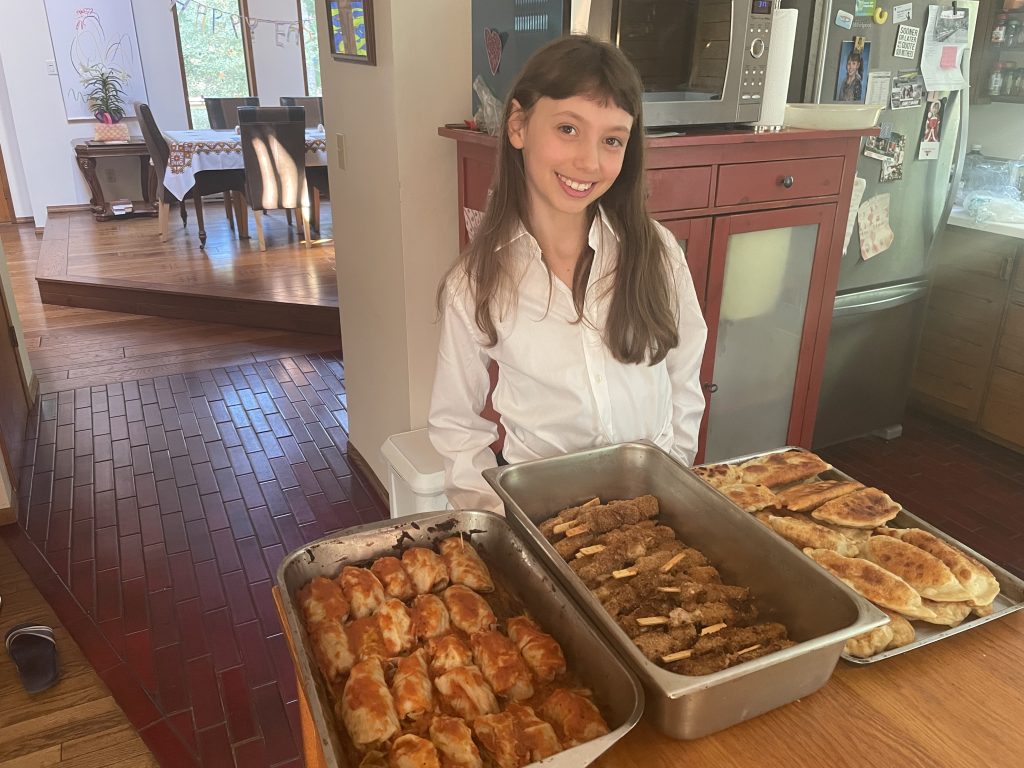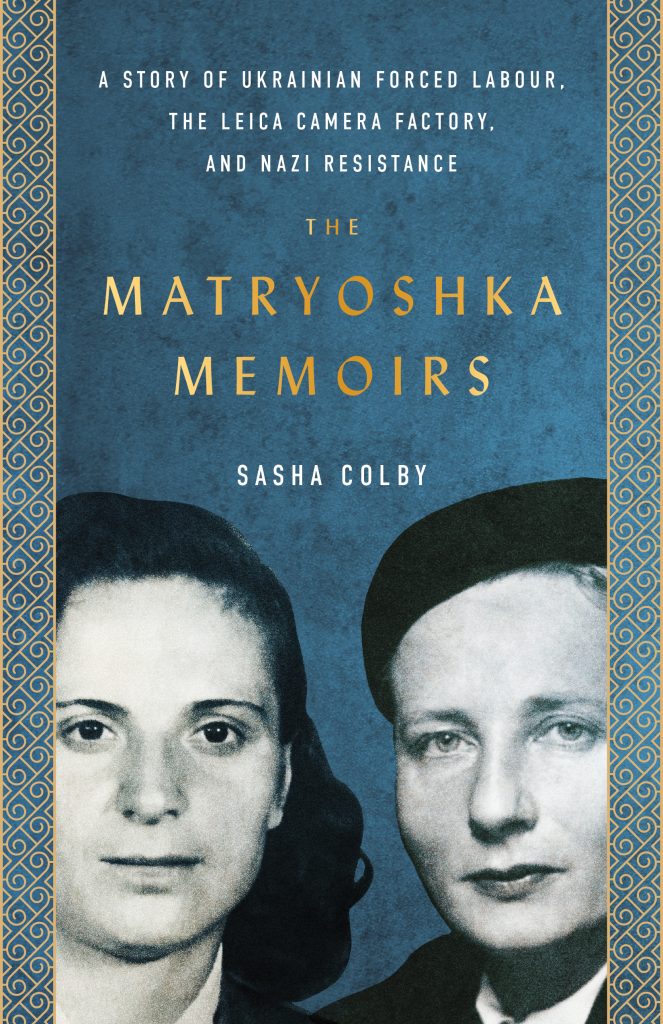In The Matryoshka Memoirs, Sasha Colby opens the doors to her family’s stories with a tenderness and grit that kept me enthralled. The intergenerational relationships and memories—beautifully layered like the Russian nesting dolls they resemble—echo the complexities of family, history, and identity. For me, the book’s intimate portrayal of Slavic heritage and the legacy of immigration had a personal resonance, recalling vivid memories of my own family’s past. https://www.sashacolby.com/

At 19, Ukrainian schoolteacher Irina Nikifortchuk was abducted to Nazi Germany to serve as a forced laborer in the Leica camera factory, later working in the household of the factory’s owners before surviving the war and eventually emigrating to Canada. Decades later, her granddaughter Sasha Colby pieces together Irina’s story through summer visits and historical research, uncovering the role of Elsie Kühn-Leitz, the factory heiress who risked her life to help forced laborers and was later imprisoned by the Gestapo for her compassion. The Matryoshka Memoirs masterfully intertwines history, survival, and family, blending life’s hardships with humor, food, and the joy of safety, while shedding light on a forgotten chapter of World War II and the debt owed to acts of courage and humanity.
On page 50, there’s a scene that was both amusing and nostalgic for me. Sasha asks her mother and grandmother why they’re arguing, only to be told they’re simply discussing the vegetables for soup. This interaction brought me back to my first visit with my fiancé to my parents’ farm. Entering a room filled with boisterous Russian, Ukrainian and Polish voices, my fiancé was convinced everyone was furious. I reassured him, saying, “Oh, they’re just discussing the weather. They’re very passionate about it.” It’s moments like these that Colby captures so well, showing that the language of family sometimes transcends words; it’s a feeling, a tradition, a way of being.

Another aspect of the book that struck a deeply personal chord was the depiction of Sasha’s grandmother Irina, who, despite surrounded by family members in Canada, adamantly refused to return to Europe. This choice mirrored my own father’s experience. As a Russian soldier who managed to escape and ultimately immigrate to Canada, he, too, was determined to leave the past behind, so much so that he changed his name and severed all contact with family back in Russia. Any communication, he feared, could risk his family’s safety due to his desertion. In this way, Colby’s depiction of Irina feels incredibly authentic: conveying the trauma, resilience, and resoluteness that many in her generation possessed.

Colby’s portrayal of hidden stories resonated strongly with my mother’s experience as well. Like Irina, my mother spent much of her life concealing the horrors she and her family faced in the camps. It was only in her later years that she began to share these memories—perhaps enough time had finally passed for her to revisit them, or perhaps, as dementia crept in, she found herself living in those memories once again, unable to keep them locked away.

Visiting my Polish grandfather and Lithuanian grandmother was always immersed in food. Surrounded by sauerkraut, perogies, golubtsy and borscht, the dinner table was loaded with flavour and connection. The author was kind enough to share her favourite dish, Chebureki found in our Recipe section. Chebureki are fried turnovers filled with minced meat mixed with onions and garlic. They are popular in Russia, Ukraine and Central Asia. They can be eaten as a snack or served with other foods for dinner. Irina and her daughter made this dish along with meat on a stick and cabbage rolls to serve her family.

The author recently came back from Germany, where she was able to give a presentation inside the Leitz mansion, Haus Friedwart! Here’s a photo of the talk, where she is being introduced by Elsie Kühn-Leitz’s grandson, Oliver Nass. “A wonderful and very moving experience to be in the very house where the story takes place,” Sasha tells us.

In reading The Matryoshka Memoirs, I found both a familiar reflection of my own family’s history and a powerful reminder of the resilience that endures across generations. Sasha Colby’s work is not only a beautiful tribute to the strength and love that define family but also a touching homage to the unspoken memories that shape us all. A stark reminder that as we navigate our own tumultuous political landscape, that history does not repeat itself. Read this poignant memoir by purchasing it at https://ecwpress.com/products/matryoshka-memoirs or go to our Giveaway section and win your very own copy!
Contents and images used with permission by ECW Press. https://ecwpress.com/collections/memoir/products/matryoshka-memoirs


